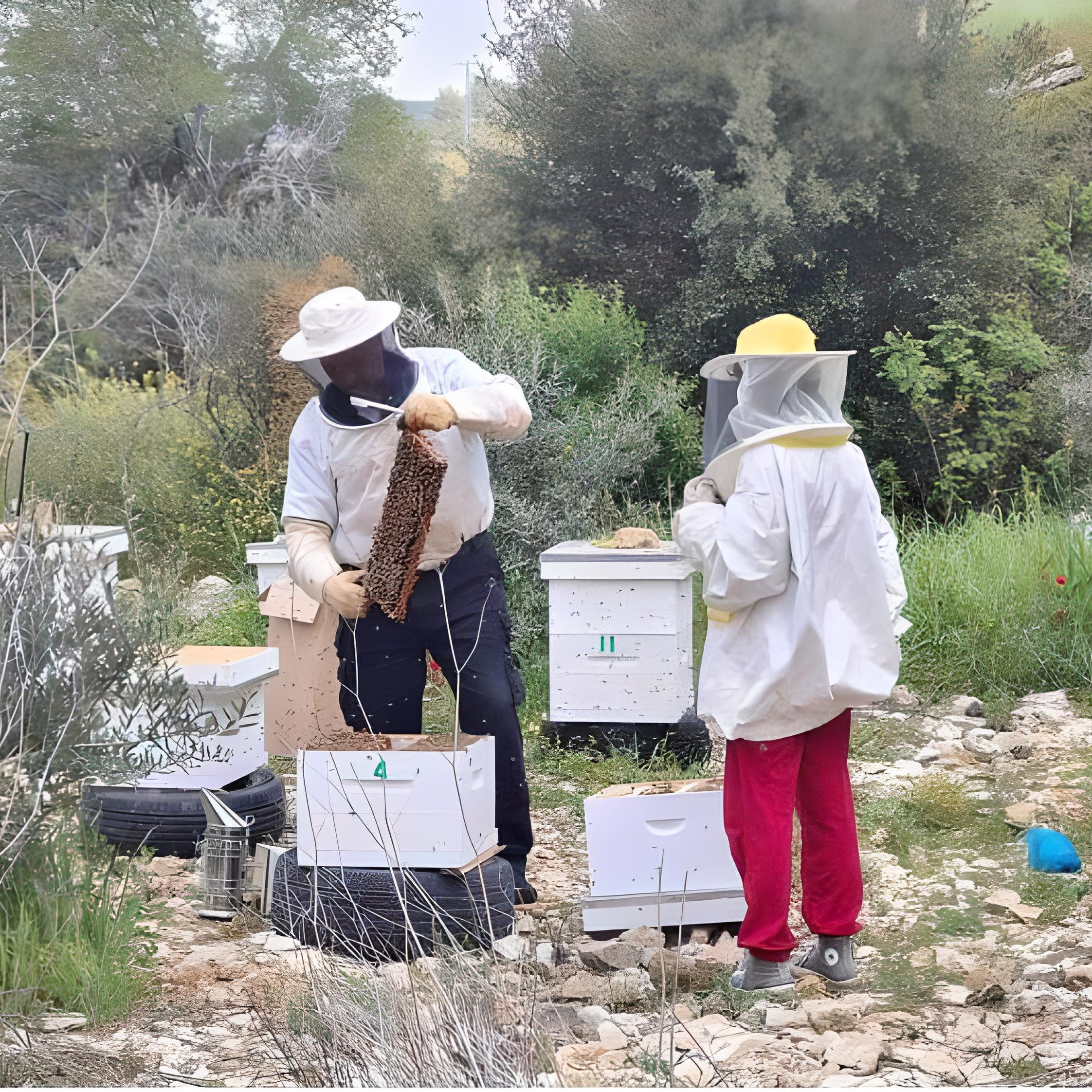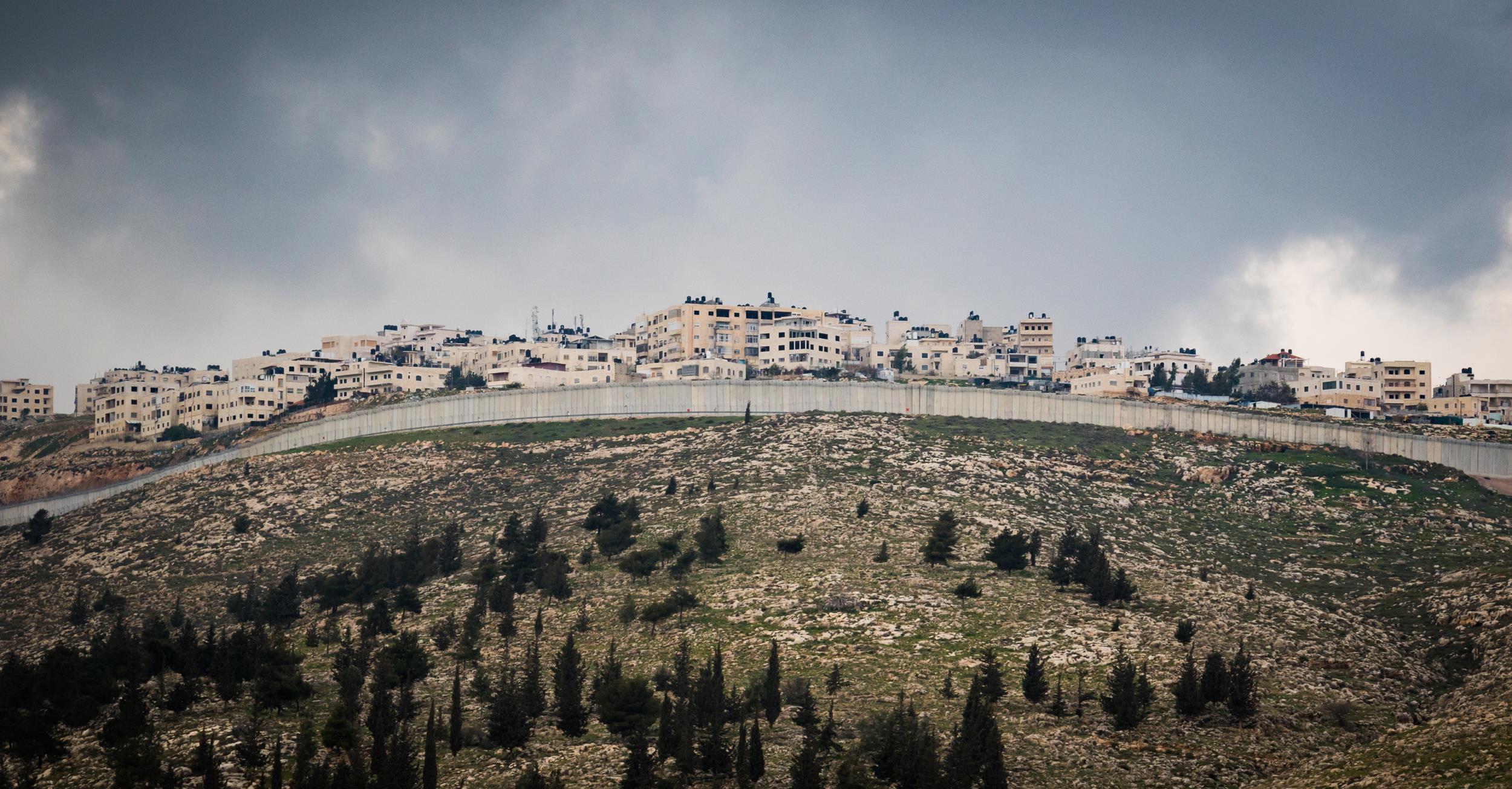Solidarity with the Palestinian people: work and inclusion through beekeeping
Palestine has suffered years of occupation, dispossession and exploitation of natural resources, while witnessing the effects of climate change intensify at an alarming rate.
The relationship with the land and its resources has a really deep meaning here. By strengthening this connection, AVSI in Palestine supports the Palestinian people, to whom the UN is dedicating today, November 29 - an international day of solidarity to reaffirm the inalienable rights still denied in the West Bank and Gaza Strip.
Small but precious: bees as an opportunity for social redemption
Honey production and beekeeping have become an income opportunity for Palestinians, providing the resources needed, for example, to ensure food security to their families or to provide quality education for their children.
Moreover, beekeeping is an activity that contributes to the development of Palestine, starting from the resources of its own land and community.
For years, AVSI has been supporting inclusive and sustainable economic development in Palestine, thanks in part to the involvement of institutions such as the Emilia Romagna Region. Emilia Romagna has provided funds to - among others - the "Bee Together!" project, which supported Abu Sami and his family on a path of social redemption.
Abu Sami: the beekeeper from Battir, Palestine
Abu Sami is a beekeeper who lives in Battir, a Palestinian village not far from Bethlehem, and is the father of Sami, an autistic boy who attends the Lifegate Rehabilitation center (one of AVSI's longtime partners in Palestine) in Beit Jala. The institute provides children and youth with disabilities with health and educational services, from therapy and rehabilitation to vocational training, play and educational activities. It also offer support to their families.
Thanks to the “Sinergy” project in 2021, Sami's family received the materials, along with technical and management training, in order to start a small beekeeping business. By the end of 2021, they were able to set up 15 hives and sell their honey through a social cooperative contacted by AVSI.
This year, the “Bee Together!” project, funded by the Region of Emilia Romagna, allowed them to receive more support for their business, through direct funding and counseling to obtain all quality certifications from the Palestinian Ministry of Economy. They had the opportunity to learn basic principles of financial management and develop a promotion plan. Abu Sami has followed a networking strategy and started participating in local fairs, thus advertising its honey and expanding its market.
I received a lot of appreciation: by August, I had already managed to sell 50 kg of honey. I even received more requests than those I could satisfy. My honey is 100 percent pure, I don't add sugar. Ensuring high quality standards is challenging, but it is ultimately a good investment.
Abu Sami, beekeeper supported by AVSI in Palestine
Encouraging beekeeping in Palestine means supporting the resilience of the Palestinian people
Thanks to beekeeping, Abu Sami is able to pay school fees for his son Sami at the Lifegate Institute. In addition, what began as an income-generating activity has also turned out to be therapeutic for the boy. Sami started helping is father and is learning how to manage the hives: caring for the bees is teaching him a job and allowed him to discover his real passion.
The story of Abu Sami, his son and their beekeeping business is a story not only of redemption, but also of return to the land and, in some ways, of healing and therapy.
The project "Bee Together! Fair Work, Sustainability and Education in Palestine"
The project "Bee Together! Fair Work, Sustainability and Education in Palestine" is implemented by AVSI and funded by the Emilia Romagna Region. It aims to improve the socio-economic resilience of the population in the governorates of Bethlehem and Hebron, by promoting employment opportunities for families in socio-economic distress and with people with disabilities, inclusive education for children and youth with disabilities, and environmental sustainability.
The project, which ends exactly on the occasion of the United Nations International Day for Palestine, achieved the following results:
- Environmental protection education. Seventy disabled male and female students attending the Effetà Paul VI Institute and Lifegate Rehabilitation Center (ages 6 to 20), were taught to rediscover the value of the earth and to raise awareness on the matter, to protect their city and the surrounding environment. The youth participated in three environmental education events: the cleaning initiative "Clean Your Beit," an olive harvesting agricultural workshop, and a workshop on recycling and creative reuse of waste materials at the Bethlehem Creative Recycling Center.
- Food security. Three greenhouses, made of recycled plastic bottles produced by the Lifegate Rehabilitation Center, will be given to three families of male and female students attending the center to start their own gardens.
- Vocational training. 3 students of the Lifegate Rehabilitation Center took vocational courses in sustainable agriculture.
- Doing business. Abu Sami's beekeeping enterprise is now a well-established business that can stand on its own.
UN declared Nov. 29 the International Day of Solidarity with the Palestinian People.
The purpose of this day is to remind the international community that the issue of Palestine is still unresolved and that the Palestinian people must be able to enjoy the inalienable rights that the General Assembly has defined: the right to self-determination without outside interference, the right to independence and national sovereignty, and the right to return to the homes and property that Palestinians have had to abandon.





